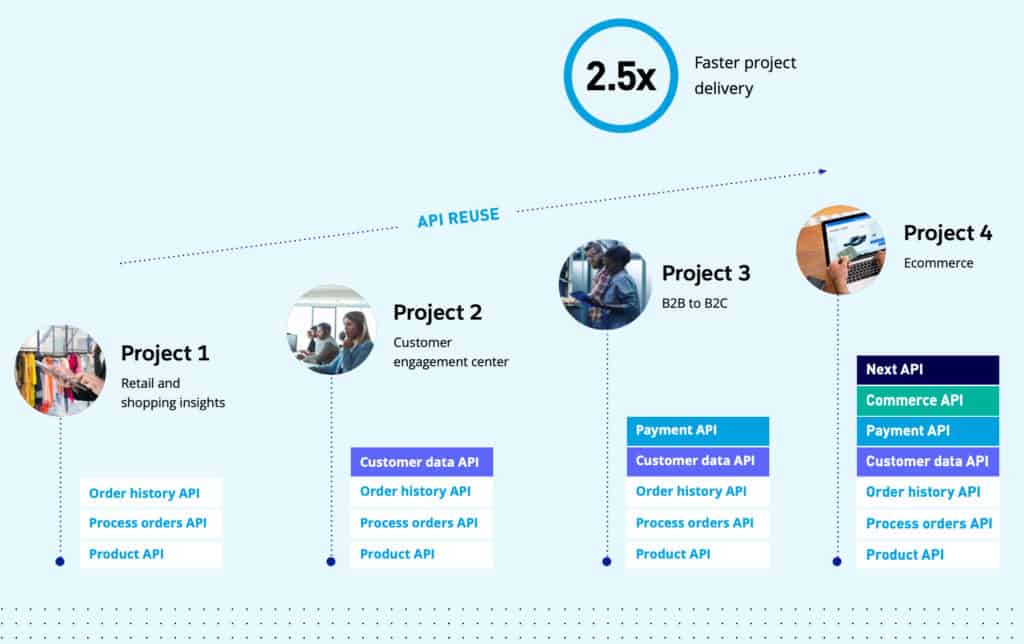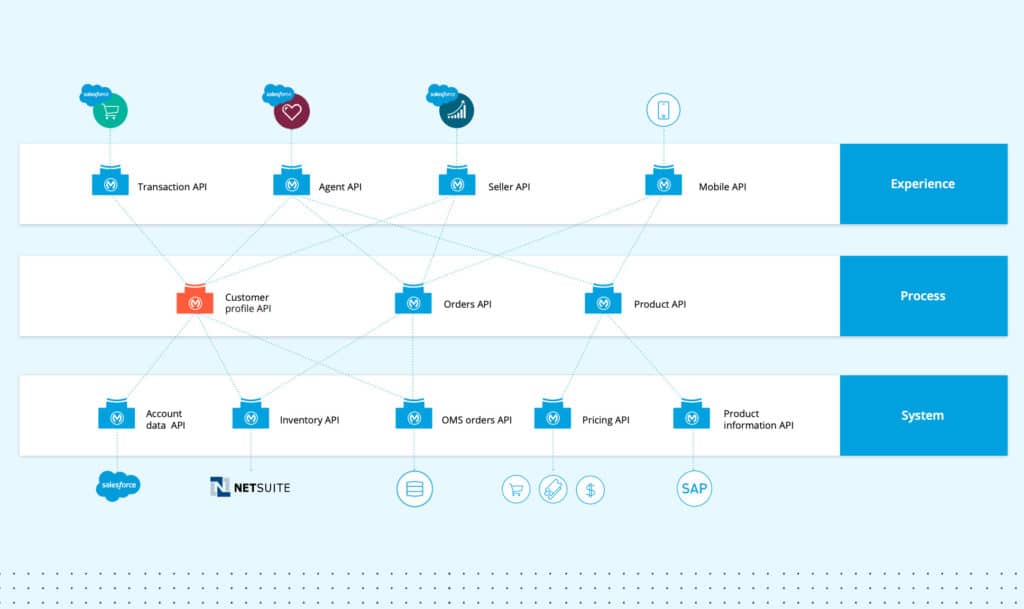Data is at the core of transformation, yet 89% of IT leaders are still struggling with data silos
Around the world, companies are facing unprecedented disruption to their businesses and operations. This time of tremendous global change is putting the emphasis on digital business and the ability to adapt and connect to customers in new and meaningful ways. Organizations across industries are transforming to provide personalized, real-time healthcare, faster service agent time-to-resolution, unified digital banking experiences, seamless eCommerce transactions that scale with heightened demand, and more.
To create truly distinctive and differentiated offerings, business must bring data across multiple technologies together to draw insights. According to Forrester, insight-driven businesses are growing at an average of 30% each year and by 2021 they are predicted to take $1.8 trillion annually from their less-informed industry competitors. However, 89% of IT leaders report data silos are inhibiting digital transformation initiatives. Siloed data and legacy infrastructure results in companies often disconnected from the information that helps them understand what is happening with their customers, partners, and employees. To solve for this, data must be aggregated across disparate sources financial and compliance systems, consumer channels (social, wholesaler, distributor, retail), and on-premises systems and databases.
To integrate these disparate systems, organizations often turn to custom code or monolithic web services. Although custom code quickly enables communication between data sources, as businesses evolve and develop new applications on top of pre-existing code, complexity increases which results in more tightly coupled applications and internal dependencies. Over time, custom code results in a “spaghetti architecture” that is fragile, inflexible, and expensive to maintain.
APIs as reusable building blocks provide the most secure, scalable, and flexible approach to unlocking data
Sixty percent of IT leaders report integration using APIs is critical to their digital transformation strategy. Modern APIs can be leveraged as building blocks that represent unique business capabilities, like inventory data or order status, that can be composed into a connected experience. API composability allows organizations to innovate faster than ever before. If various components are wrapped in APIs that can be easily discovered, understood, consumed, and secured, they enable teams across the organization to access data and digital capabilities in new ways while giving IT the tools to manage and secure them at scale. This allows organizations to roll out new connected experiences faster, now and in the future.

Unleashing the full power of Salesforce Customer 360 with APIs
Since MuleSoft was acquired by Salesforce in 2018, we often hear questions from our customers including:
- What are best practices for building APIs and integrations with Salesforce?
- What new innovations have MuleSoft and Salesforce developed?
- What strategic advantages do they offer my organization?
MuleSoft and Salesforce are innovating together to help customers transform their digital business, maximize value from legacy investments, and rapidly unlock and unify data to stay connected to their customers. We’ve compiled information for customers in our new eBook, Unleash the full power of Salesforce Customer 360 with APIs.
This eBook outlines how customers can use MuleSoft to integrate Salesforce with an ecosystem of third-party systems and apps to build scalable, secure, and connected experiences more efficiently and at reduced maintenance costs. Examples of how organizations are transforming their business with integration:
- 360° view of the customer
Create differentiated experiences using an API data layer that acts as a source of truth of every customer interaction. - Legacy modernization
Adapt existing on-premises applications, data repositories, and services to co-exist with cloud infrastructure and applications. - New digital channels
Drive a successful omnichannel strategy with IT architectures built for connectivity, agility, and flexibility. - API ecosystems
Leverage API portals to share integration assets and increase developer, customer, and partner engagement.

MuleSoft and Salesforce are innovating together to help customers realize connected experiences, faster
To accelerate digital transformation initiatives, MuleSoft and Salesforce are innovating on new joint technologies. Unleash the full power of Salesforce Customer 360 with APIs provides information on new product innovations from MuleSoft and Salesforce to help customers innovate faster, including:
- MuleSoft Accelerators for Salesforce Clouds:
Pre-built APIs, templates, and reference architectures to help joint customers implement critical integration use cases for Service Cloud and B2C Commerce Cloud, faster.
- Salesforce and third-party connectors and templates:
Anypoint Exchange, our marketplace of APIs and integration assets, includes out-of-the-box connectors and templates to Salesforce and common third-party systems like SAP, Oracle, Amazon S3, Azure, and more. - API Community Manager:
Built on Salesforce Community Cloud, API Community Manager is a new offering that allows organizations to build personalized, digital developer portals to promote API products and increase engagement across ecosystems.
Thousands of customers across industries are transforming their digital business with MuleSoft and Salesforce. With integration, they are extending and enriching legacy investments, powering custom applications with third-party data, connecting CRM with back-office systems, creating a 360-degree customer view for service agents, building best-in-class healthcare and financial services solutions, and more. Together, MuleSoft and Salesforce enable organizations to rapidly surface their data to deliver intelligent, connected experiences across channels and touch points.
To learn more about API-led connectivity with Salesforce and new innovations, read our new eBook, Unleash the full power of Salesforce Customer 360 with APIs.









